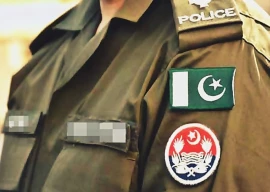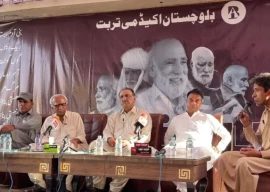
There were three conflicting claims of responsibility for Sunday’s suicide bombing at the Wagah border crossing from as many extremist groups – including two factions of the Tehreek-e-Taliban Pakistan (TTP).
Jundullah spokesperson Ahmadullah Marwat, TTP-Jamaatul Ahrar spokesman Ehsanullah Ehsan and Geelamand Mesud, the purported but largely unknown spokesman for TTP-Mahar Mehsud Group claimed credit for the blast in phone calls to media outlets. The first two talking heads of militants – Marwat and Ehsan – are familiar figures at least for the media, but Mehsud appears to be a ‘stranger’.
Mahar-Mehsud Group fighters are said to be successors of Hakimullah Mehsud, the TTP chief who was killed in a US drone strike in the Waziristan region in 2013. Sheheryar Mehsud heads this faction which is loyal to the incumbent TTP Ameer Mullah Fazlullah.
Marwat’s and Geelamand’s claims were sketchy, giving no details of who carried out the attack, how and why? Conversely, Ehsan issued a detailed statement. “Our friend Hanifullah carried out this attack,” he said referring to the suicide bomber. “This attack is a revenge for the killing of innocent people by Pakistan Army, particularly those in North Waziristan.”
Ehsan claimed that it was the start of attacks from his group which would be followed by more such assaults. “We will soon release a video of this attack,” he said in the statement.
Aside from the veracity, these contradictory claims point to two things: First, they show growing fragmentation in the TTP which used to be a monolithic umbrella of militants of different hues. Fissures developed within the group following the death of Baitullah Mehsud. These were temporarily healed by his successor, Hakimullah Mehsud. However, centrifugal forces in the group reemerged with full force after the ascendency of Fazlullah. And just before the launch of Operation Zarb-e-Azb, the group virtually imploded and splinter factions emerged.
Second, the fact that three groups owned the Wagah carnage strengthens the belief that almost all militants are opposed to normalisation between Pakistan and India. By carrying out the attack at Wagah, which is seen as an emblem of trade between the two neighbours, the terrorists tried to sabotage trade and whip up security fears across the border in India. The terrorists knew that the brazen bombing would have the potential to further strain relations between the two countries which have exchanged barbs over the recent border skirmishes.
Published in The Express Tribune, November 4th, 2014.
COMMENTS (4)
Comments are moderated and generally will be posted if they are on-topic and not abusive.
For more information, please see our Comments FAQ

















The trade can wait as the first priority should be to eliminate the cowards of all the three groups who proudly took the responsibility of killing innocent people but call themselves as the holy warriors and saviours of Islam.
Forget about trade, Pl pray for the families of Injured persons so that they recover early, and also pray for the dead
What a sick mind set.. these worms have
We are with you Pak Fauj
Wipe out these evil monsters